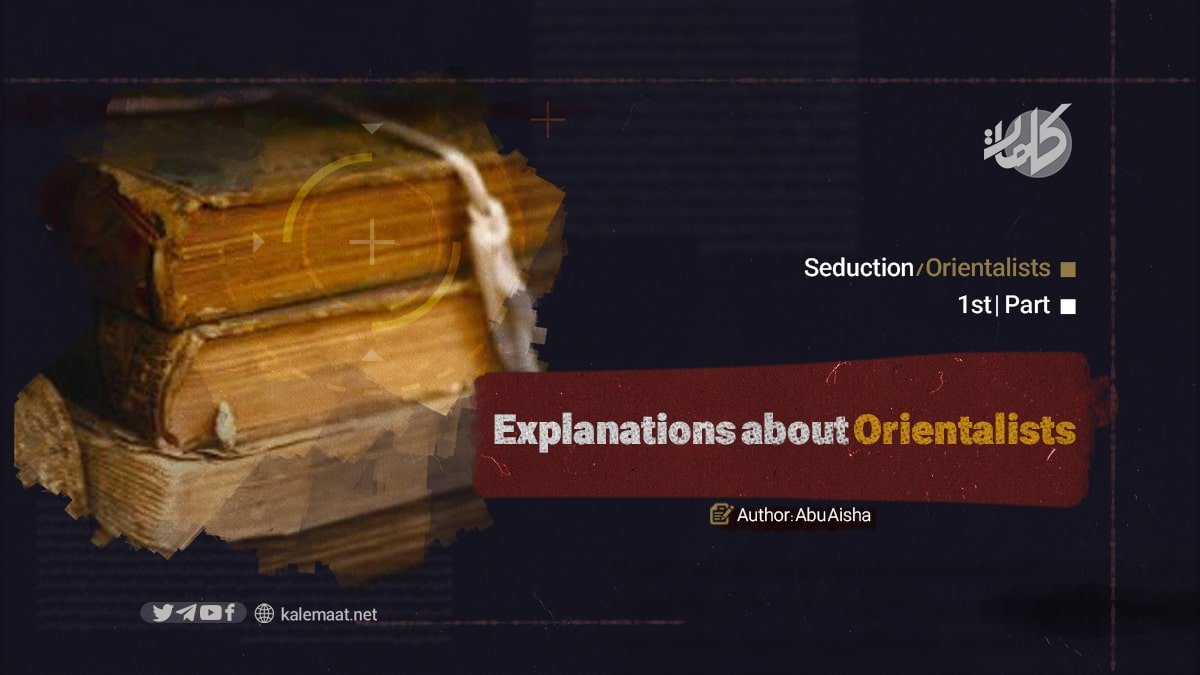Author: Abu Aisha
Orientalism and Orientalists (First Part)
Introduction
One of the important phenomena in the fields of science and politics is the phenomenon of Orientalism and Orientalists, which has various destinations, motivations, and purposes. These include political, economic, cultural, colonial, missionary, and scientific goals.
The main field of activity for this group includes universities, schools, institutions, organizing meetings and conferences, writing books, and publishing journals in various dimensions and aspects. This group has made significant efforts to achieve its goals and purposes, and it is necessary for every Muslim advocate to have accurate information about this movement and be aware of their thoughts, ideas, plans, and agendas.
Considering the activities of this group, which are carried out in various directions and are part of the overt attack by the West against Islam and Muslims, we aim to shed light on this phenomenon to the best of our ability and identify the nature of their activities. In this article, we first provide a definition of Orientalism and Orientalists, then highlight their motivations and goals, and finally examine their misconceptions.
Lexical definition of Orientalism
Orientalism is an Arabic term derived from the root word (sharq), which means “the East.” In Arabic, it refers to the act of choosing the ways and methods of the East, studying the Eastern lands, and researching or exploring the East.
The English translation of this term is “Orientalism.” Therefore, a (moustashriq) is referred to as an “Orientalist” or a scholar who specializes in studying the East or Eastern cultures.
Terminological definition of Orientalism
The term “Orientalism” and its derived words like “orientalist” are considered relatively new and modern terms, although their underlying concepts have a long history. Scholars have provided various definitions for this term, and here are some examples:
Maxime Rodinson, a prominent Orientalist of the 20th century, defines Orientalism as follows: «اتجاه علميّ لدراسة الشرق الإسلامي وحضارته. »Thus, it refers to a scholarly approach to examining the Islamic East and its culture.
Dr. Mahmoud Hamdi Zaqzouq believes that Orientalism is “the science of the East or knowledge about the Eastern world.” The term Orientalist, in its general sense, refers to any Western scholar engaged in the study of languages, literature, civilization, and religions of Middle Eastern countries.
Sheikh Mohammad Ghazali writes: ” Orientalism is a new form of antiquated research that has donned the garb of knowledge and monasticism, although this group is far from the realm of true knowledge and detachment. Most Orientalists have been hired to insult Islam and fabricate accusations against it.”
However, if we want to have a comprehensive and inclusive definition of Orientalism that encompasses all these definitions, we can say the following: Orientalism refers to a collection of Western scientific endeavors to identify countries, geographical conditions, resources, mines, history, ethnicities, languages, literature, art, customs, traditions, culture, beliefs, religions, civilizations, psychological sensitivities, dangerous dimensions, and vulnerable points of the people of Eastern lands. This includes the Far East, the Near East, the Eastern Mediterranean, and even other Islamic lands in North Africa and other parts of the world, with the aim of discovering their material and spiritual wealth for the benefit of the West.
The rise and emergence of Orientalism:
Regarding the emergence of the phenomenon of Orientalism, authors have different views. Some argue that official Oriental studies began in the 18th century because the term “Orientalism” entered the culture of Western countries in the second half of the 18th century.
Dr. Mostafa Sabahi writes: “It is not precisely known who the first Westerner was to engage in Eastern studies and when exactly it happened. However, it is certain that a number of monks traveled to Andalusia during its glory and greatness, seeking knowledge. They translated the Quran and Arabic books and sat at the feet of Islamic scholars, especially in various sciences such as philosophy, medicine, and mathematics.”



